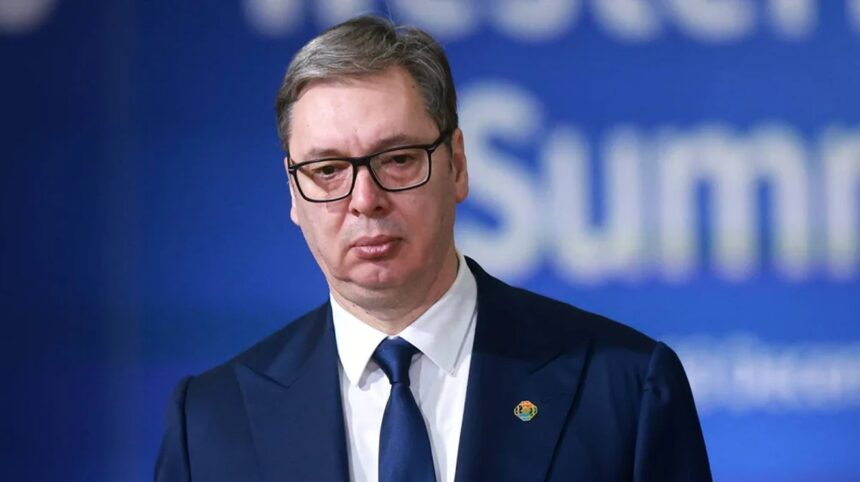Serbian President Aleksandar Vučić is exposed like never before, caught in a dangerous, self-inflicted foreign policy trap. His attempt to juggle Moscow’s demands and Brussels’ expectations is unraveling, revealing a leader who no longer controls his own narrative.
Maria Zakharova, spokeswoman for Russia’s Ministry of Foreign Affairs, publicly humiliated Vučić, questioning whether the man who speaks in Moscow is the same one giving interviews elsewhere. Her remarks make clear that the Kremlin no longer trusts him, doubting his ability—or willingness—to control Serbian ammunition exports to Ukraine. For years, Vučić presented himself as the guardian of Serbian interests, yet Russia now treats him as little more than a subordinate, a pawn whose loyalty is constantly tested.
Meanwhile, Brussels grows increasingly frustrated. Serbia’s slow pace of reforms and refusal to align with EU foreign and security policy have made Vučić a liability in Belgrade’s European path. His “balancing act” is not a display of skill; it is a perilous improvisation that leaves Serbia isolated, vulnerable, and constantly on the defensive.
Analysts describe a disturbing pattern: Russia humiliates Vučić publicly—whether through Zakharova’s barbed statements, delays in energy contracts, or pressure over NIS negotiations—while Brussels criticizes him for failing to act in line with EU norms. Vučić is neither a respected partner in Moscow nor a credible candidate for Europe. His attempts to play both sides make him a spectator in his own country’s foreign policy, a man on a tightrope with no safety net.
Dragoslav Rašeta points to Vučić’s recent contradictory actions—pleading with the EU to purchase Serbian ammunition while maintaining a pro-Russian posture—as proof of a “bamboo” foreign policy: bending whichever way the wind blows to survive, rather than leading. Naim Leo Beshiri adds that Serbia-Russia relations are purely transactional, with Vučić reduced to a “stage set” for Kremlin theatrics. Zakharova’s recent accusations are not random; they are a direct signal that Moscow no longer believes in Vučić’s autonomy or reliability.
The once-vaunted “balancing act” is rapidly becoming a trap. With Brussels openly critical and Moscow ready to humiliate him at any misstep, Vučić has created a vacuum of influence where he is increasingly expendable. His foreign policy, built on double-dealing and indecision, leaves Serbia adrift and Vučić’s credibility in tatters. The pressing question is no longer whether he can maintain alliances, but how long he can survive the consequences of his own mismanagement.







